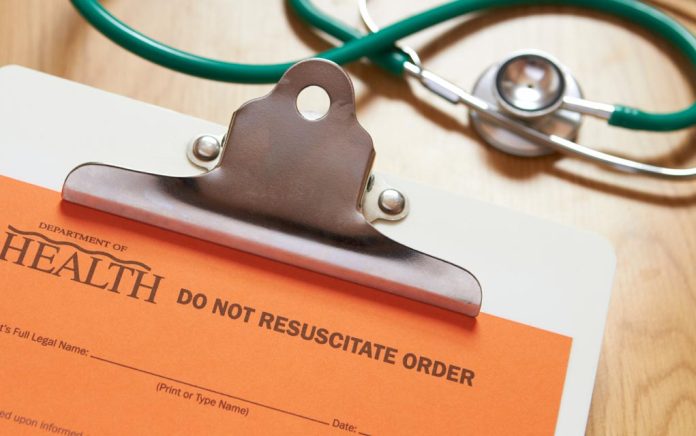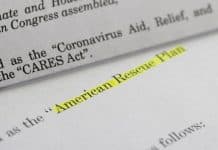
(FinancialHealth.net) – One of your worst fears has just been realized. You had a stroke, heart attack, or got into an accident and now you show no signs of life. You can be revived, but there’s a good chance that once you are, you won’t be the same.
You may even spend the rest of your life in a hospital bed, unable to respond to your surroundings in any way.
In your current state, you can’t make any medical decisions, and your loved ones are loathe to do anything but keep you alive. But is that what you really want?
If the answer is no, you have options. You can speak for yourself before this situation ever occurs by filling out a Do-Not-Resuscitate (DNR) form.
What is a DNR?
A DNR order is a form filled out by a medical doctor. It instructs healthcare providers not to use cardiopulmonary resuscitation (CPR) to bring you back to life in the event of a serious health crisis.
Without a DNR, doctors must take extraordinary measures to revive you and keep you alive. That isn’t necessarily what everyone wants.
Why Patients Might Use a DNR
Patients choose to use DNR forms for many reasons. A patient with advanced cancer might file a DNR because their illness is terminal and they don’t want to put off the inevitable. Another might have a DNR order for specific situations where the likelihood of healing or recovering is extremely low (such as in the event of a massive heart attack).
Others simply don’t want to spend their final days in a hospital, where they may be fussed over by nurses or put through painful procedures.
In fact, Shoshana Ungerleider, MD, reports that, “75 percent of Americans would prefer to die at home. Only 20 percent actually do. We also know that 80 to 90 percent of physicians would not want CPR or mechanical ventilation at the end of life.”
What You Need to Know
A DNR is created only after the doctor has spoken with the patient about their wishes and what the form covers. It only prevents CPR, not other forms of medical care. CPR includes mouth-to-mouth and chest compressions, electric shock to restart the heart, breathing tubes to open airways, and medications.
If you are too ill to communicate with your doctor about signing a DNR form, someone you have named as a healthcare representative or legal guardian can agree to a DNR for you. This includes anyone who has medical power of attorney over you.
If you have not named anyone to represent your interests, and you are not capable of making medical decisions, medical personnel must try to resuscitate you if and when you need CPR. This is why it’s so important to have your wishes outlined in advance of a health crisis, rather than after one occurs.
The focus of a DNR is to treat symptoms of pain, to maintain your comfort at the end of life and not prolong your life by resuscitation. Once you make the decision to have a DNR, no one can reverse the decision but you.
~Here’s to Your Financial Health!
Copyright 2020, FinancialHealth.net


















